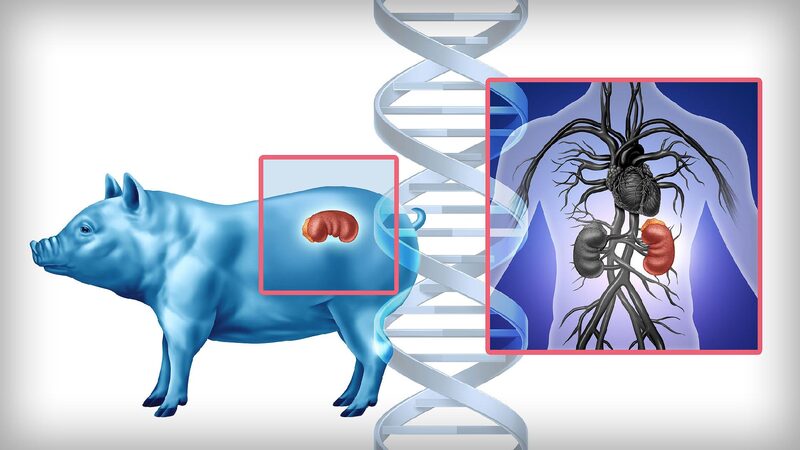In a groundbreaking medical achievement, doctors in China have successfully transplanted a gene-edited pig kidney into a 69-year-old woman suffering from end-stage kidney disease. The operation, performed on March 6 at Xijing Hospital of the Air Force Medical University, marks a significant milestone in the field of organ transplantation.
After the transplant, the pig kidney turned pink and began functioning almost immediately, producing urine and displaying normal kidney activity. By the third day post-operation, the patient’s serum creatinine levels—a key indicator of kidney function—had dropped to normal. On the sixth day, her 24-hour urine output reached over 5,400 milliliters, indicating the new organ was working effectively.
The patient had been battling chronic renal failure for eight years and relied on dialysis three times a week. Unable to find a suitable human donor, her condition had been deteriorating, and complications from long-term dialysis had emerged. This successful transplant offers a new lifeline for her and potentially millions of others awaiting organ donations.
“Xenotransplantation could be a key way to solve the organ shortage problem and offer new hope for many patients,” said Dou Kefeng, the lead surgeon of the medical team at Xijing Hospital.
China faces a significant shortage of organs, with approximately 130 million people suffering from chronic kidney disease and a growing number reaching end-stage renal disease each year. The demand for viable organs far outpaces the supply of human donors, making xenotransplantation—a process where organs from one species are transplanted into another—a promising avenue.
While challenges remain, such as the risk of immune rejection and infections, the success of this procedure brings optimism. Previously, similar transplants have been conducted in the United States, but this operation marks a notable achievement for China in the field.
The medical community continues to explore the possibilities of gene editing and cross-species transplantation. Last year, Chinese scientists successfully transplanted a gene-modified pig kidney into a macaque, achieving organ function for over six months—a benchmark for long-term survival in xenotransplantation research.
As the patient recovers, medical professionals worldwide are watching closely, hopeful that this breakthrough will pave the way for more advancements in tackling organ shortages and saving lives.
Reference(s):
Pig-to-human kidney transplant in China offers hope to millions
cgtn.com







